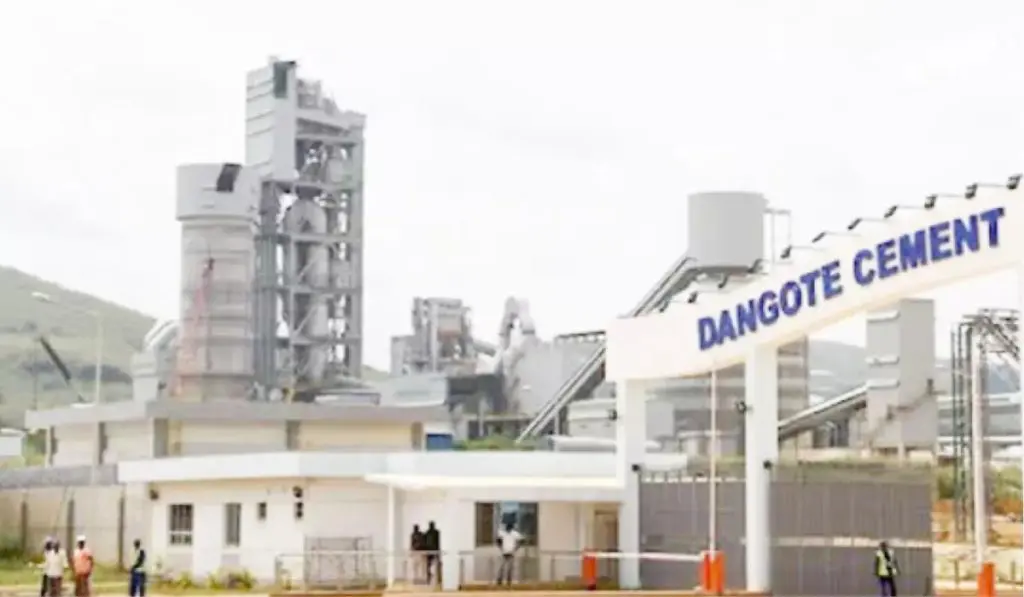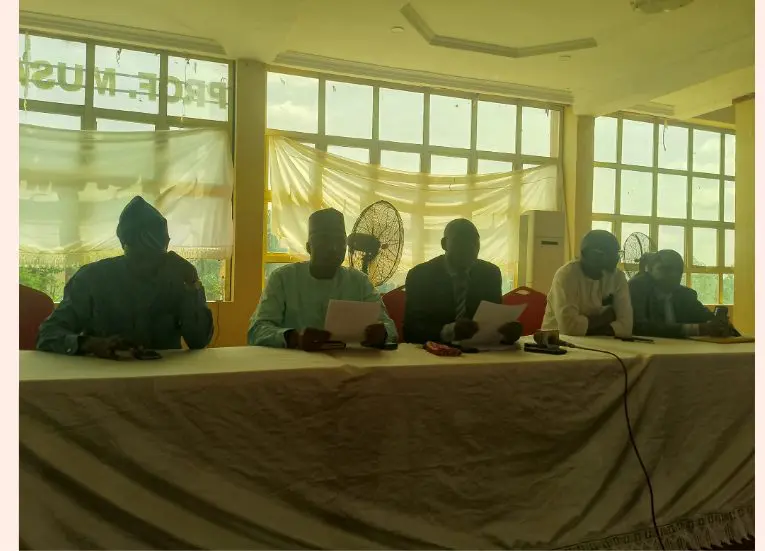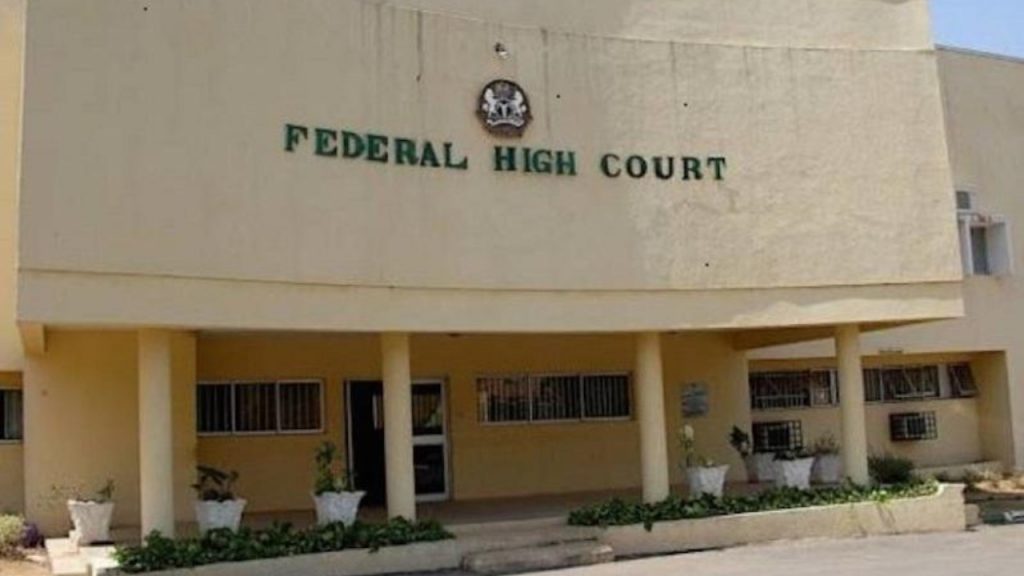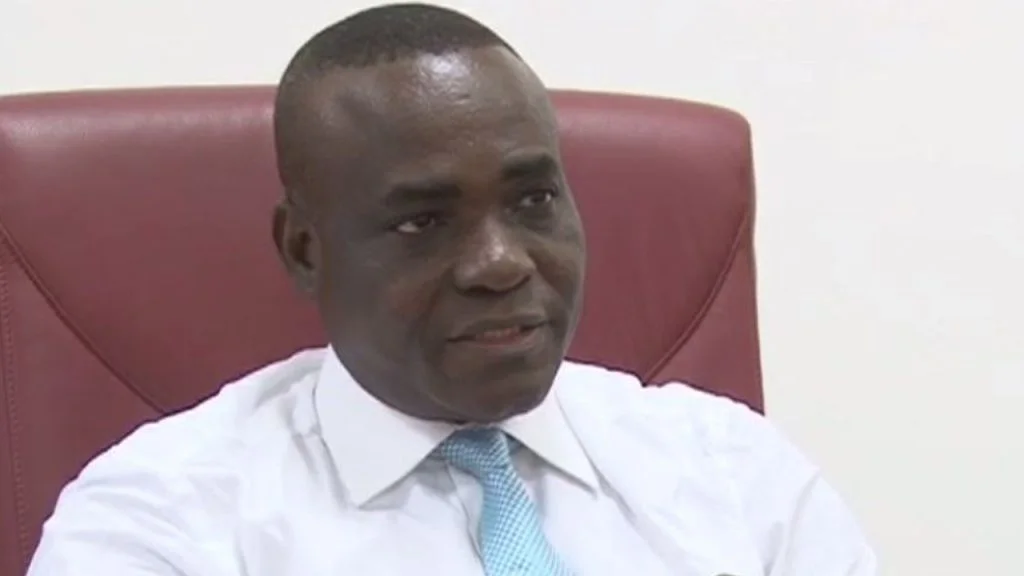News
Despite Dangote’s N110bn tax remittances, Ogun communities rue lack of basic amenities

Between 2021 and 2023, Dangote Cement Limited disbursed over N110 billion in taxes to the Federal Government of Nigeria and the Ogun State government, according to documents acquired by DAILY POST.
The documents detail tax allocations, with the total amounting to 32,462,664,910.08 in 2021. Of this, Ogun received N921,094,294.6, while the federal government received 31,541,570,615.45.
In 2022, the total shared increased to 39,354,705,409.22, with the federal government receiving 37,703,832,035.03 and the state government getting 1,650,873,374.19.
In 2023, the shared amount was 38,715,913,399.70, with Ogun receiving 2,238,591,155.26 and the federal government getting 36,477,322,244.44.
Over the stated period, the federal and state governments received N105,722,724,894.97 and N4,810,558,824.02, respectively, from the mining company.
Dangote Cement’s Ibese plant, situated across 17 communities in Yewa North Local Government Area of Ogun State, produces 12 million metric tons of cement annually across its four production lines.
Despite the substantial tax contributions, local communities continue to endure hardships and lack basic amenities. Roads in the area are in dire need of repair, including Ayetoro-Abeokuta, Joga Orile, Igan Okoto-Sawonjo-Igbogila, and others.
Residents suffer health risks due to cement dust emissions, with some reporting respiratory complications. Locals also express dissatisfaction with the company’s employment practices, citing neglect of indigenous workers and exploitation of natural resources.
Environmental concerns have arisen, with accusations of offenses against the multinational company. State authorities express dissatisfaction with the plant’s impact on the environment, calling for better cooperation between the company and the government.
Efforts to obtain a response from Dangote Group have been unsuccessful.
News
Nigeria s 1999 Constitution full of flaws – Muslim lawyers association

The Muslim Lawyers Association of Nigeria, MULAN, has declared that there are many defects and flaws in the current 1999 Constitution of the Federal Republic of Nigeria.
MULAN National President, Dr Kazeem Olajide Olaniyan, made this declaration while addressing a press conference to herald the 15th annual general conference of the association on Thursday in Ibadan, the Oyo State capital.
Olaniyan stressed that Nigeria needs a homegrown Constitution that will address the current challenges facing the country.

According to him, the 1999 Constitution was drafted during the military rule and has many defects and flaws.
He noted that a homegrown will address the current problems the country is facing.
Olaniyan while speaking further, maintained that the theme of the conference, ‘National Development: The new dynamics and nuances’, was chosen so as to provide solutions to the country’s problems.
He also used the medium to appeal to the government to address the issue of fuel scarcity, food crisis and inflation in the country.
“Any Constitution Nigeria must have must be homegrown. What we have now was drafted by the military.
“There are so many defects and flaws in the 1999 constitution.
“Removal of subsidy of petroleum has effect on all of us coupled with inflation. We are now experiencing fuel scarcity.
“As we speak, if we are blaming the government, there are so many things we as people are also causing. We are also calling on the government to address the problem of food insecurity.”
News
Court adjourns trial in Nigerian Govt versus Ali Bello, others to May 27

Senator Ita Enang, former Special Adviser to the President on National Assembly Matters, attributed the failure of the Nigerian economy, the escalating debt burden, and the depreciation of the national currency, the naira, to the National Assembly. Enang made these remarks during the public unveiling of Oversight Magazine, a publication dedicated to covering parliamentary events, by former House of Representatives member Aniekan Umannah.
Enang asserted that the National Assembly’s inability to pose pertinent inquiries was accountable for the economic challenges. Having chaired both the House and Senate Committees on Rules and Business, Enang criticized the chambers for never releasing reports on their oversight duties as required, nor for questioning the nation’s debt.
He highlighted that while lawmakers frequently conduct oversight visits to scrutinize the activities of Ministries, Departments, and Agencies, they neglect to present their findings for deliberation on the parliamentary floor. According to him, the executive’s suboptimal performance, at both state and national levels, can be attributed to the deficient oversight of the National Assembly and state Houses of Assembly nationwide.
Enang emphasized the importance of the oversight function, stating that it allows for monitoring the utilization of budget allocations, assessing project progress, and planning future budgets accordingly. He concluded that the failure of the Nigerian economy, the devaluation of the naira, and the excessive debt accumulation are ultimately the responsibility of the National Assembly.
News
NASS responsible for failure of Nigeria’s economy, rising debt – Ita Enang

Senator Ita Enang, former Special Adviser to the President on National Assembly Matters, attributed the failure of the Nigerian economy, the escalating debt burden, and the depreciation of the national currency, the naira, to the National Assembly. Enang made these remarks during the public unveiling of Oversight Magazine, a publication dedicated to covering parliamentary events, by former House of Representatives member Aniekan Umannah.
Enang asserted that the National Assembly’s inability to pose pertinent inquiries was accountable for the economic challenges. Having chaired both the House and Senate Committees on Rules and Business, Enang criticized the chambers for never releasing reports on their oversight duties as required, nor for questioning the nation’s debt.
He highlighted that while lawmakers frequently conduct oversight visits to scrutinize the activities of Ministries, Departments, and Agencies, they neglect to present their findings for deliberation on the parliamentary floor. According to him, the executive’s suboptimal performance, at both state and national levels, can be attributed to the deficient oversight of the National Assembly and state Houses of Assembly nationwide.
Enang emphasized the importance of the oversight function, stating that it allows for monitoring the utilization of budget allocations, assessing project progress, and planning future budgets accordingly. He concluded that the failure of the Nigerian economy, the devaluation of the naira, and the excessive debt accumulation are ultimately the responsibility of the National Assembly.
-

 World News7 months ago
World News7 months agoWhat we know about Israel’s war with Hamas
-

 Sports7 months ago
Sports7 months agoLaLiga: Everyone want to play with him – Vinicius on player Real Madrid should sign
-

 World News7 months ago
World News7 months agoIran calls on Islamic, Arab countries to confront Israel
-

 Tech7 months ago
Tech7 months agoTop 10 AI Skills to Learn in 2023
-

 Entertainment7 months ago
Entertainment7 months agoBET Hip-Hop Awards: Black Sherif wins big as Burna Boy loses seven nominations
-

 Entertainment7 months ago
Entertainment7 months ago‘Black Panther’ star Lupita Nyong’o breaks up with boyfriend, Selema Masekela
-

 ICT8 months ago
ICT8 months agoApple Bows To EU, Unveils iPhone With USB-C Charger
-

 World News7 months ago
World News7 months agoZelensky seeks defences for winter on visit to NATO




